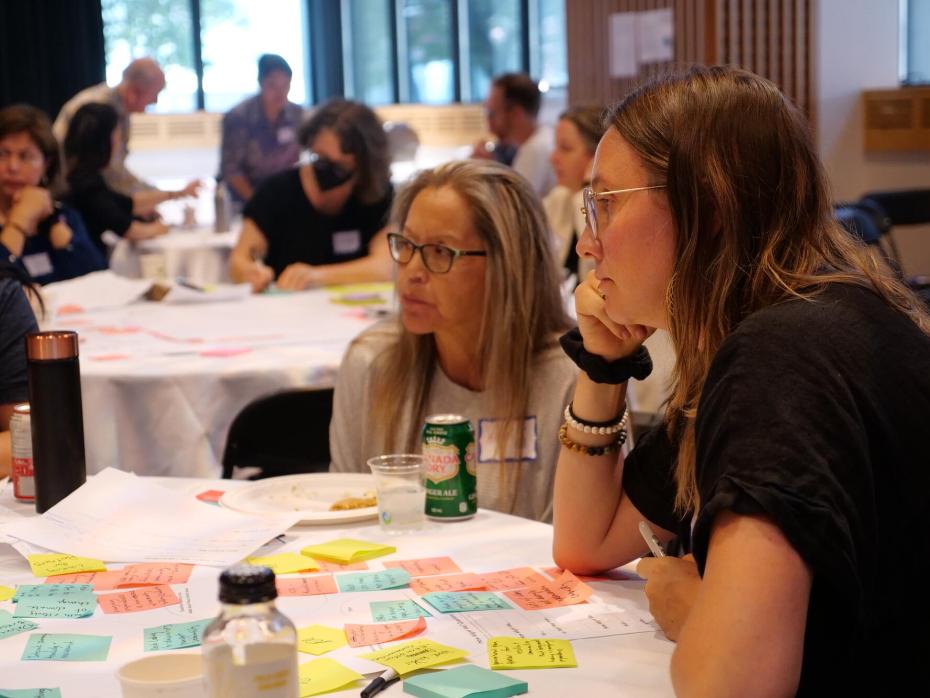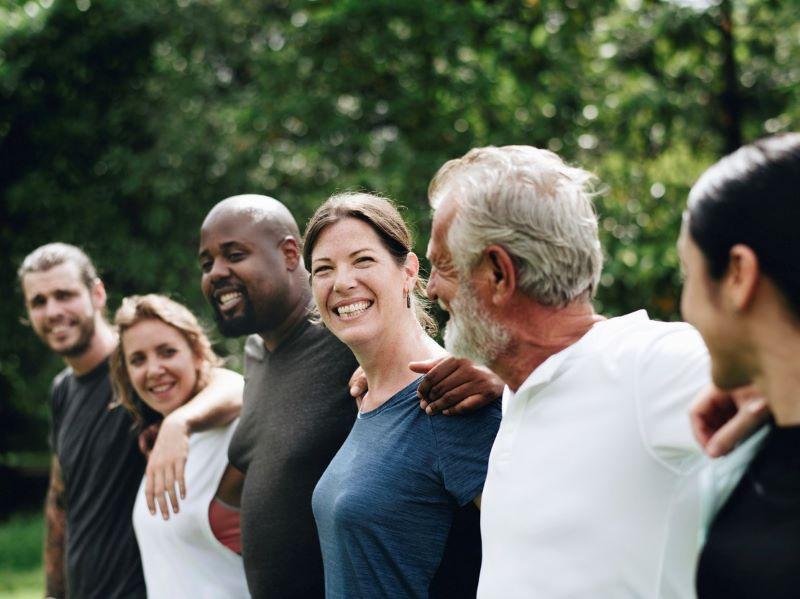
Community-engaged research can give a voice to marginalised people

You may also like
Nicolas Leech-Crier, Jule Chapman, Jim McLeod and Samona Marsh are not your average researchers. They’re not grad students or faculty members. They don’t write grants or rely on publications to advance their careers. Yet their collaborative research has been made required reading for first-year medical students at the University of British Columbia.
Leech-Crier, Chapman, McLeod and Marsh, residents of the Downtown Eastside (DTES) neighbourhood of Vancouver, are four of 16 co-authors of Research 101: A Manifesto for Ethical Research in the Downtown Eastside. The manifesto is geared towards academic researchers but provides information for anyone (artists, journalists, film-makers, volunteer groups) hoping to communicate the complexity of the community’s story elsewhere. It responds to a history of people extracting knowledge and stories from the DTES community in harmful ways.
- How to make public engagement work for early career academics
- Use students to facilitate impactful collaborations that benefit the community
- Don’t be fooled – community outreach can be even better online
In a co-authored academic publication in Harm Reduction Journal, Leech-Crier reflected on the injustice of research without reciprocity in his community: “It’s really not fair that we consistently contribute our hearts and souls into never-ending research... but they’ll just smile and shake our hands, politely thank us for participating in whatever new thing their findings may conclude...and we’ll probably never see them again.”
The manifesto demonstrates how community perceptions of what constitutes ethical and respectful practice should guide research projects, especially when those projects involve members of communities that are already heavily studied and stigmatised. It offers clear, practical advice about not perpetuating stigma, practising reciprocity and sharing power with the community members in question.
The expertise and knowledge shared by these community co-authors is based on lived experience and relationships – core aspects of a growing movement for more community-engaged research at post-secondary institutions.
What is community-engaged research?
In a traditional research project, there is an inherent power imbalance between the researcher and the researched. The researcher almost always holds the power to decide what questions to ask, what data to focus on, what issues to highlight, what quotes to use and how research should be acted upon.
Community-engaged research (CER), on the other hand, makes space for communities to work in partnership with academic researchers. It asks: Are those most affected by the problem at the table? Do they play decision-making roles in the direction of studies? Published in 2021, the Community Resource Handbook: A Guide to Community-Engaged Research produced by Simon Fraser University’s Community Engaged Research Initiative explores the key considerations, methods and ethical principles of this approach.
Rather than focusing solely on advancing knowledge in a particular field, CER is centred on community transformation and social change that meets the needs of the community itself.
Why is CER important?
CER gives a voice to marginalised, exploited or underserved communities. Research has long been a source of harm in Indigenous communities, used to justify acts of genocide and land theft. In the 1940s, researchers from the Canadian federal government exploited the malnutrition of Indigenous children living in residential schools to test the effects of nutritional supplements on children’s health. The experiments continued despite children in the study dying of malnutrition – and the results eventually showed the supplements did not work.
Indigenous-led and community-engaged research projects are showing how these communities can use research to regain control over their knowledge and history. These approaches focus on following traditional protocols, honouring their free prior and informed consent and respecting community norms. For instance, the research project Húy̓at: Our Voices Our Land used video, photos and stories to present an Indigenous perspective on Húy̓at (Hauyat), one of an immense network of culturally important landscapes in Heiltsuk territory on the Central Coast of British Columbia.
Heiltsuk Chief Marilyn Slett says of the project: “With this publicly accessible website, we’re sharing our inseparable connection with our homelands as it holds true for all First Nations up and down the coast. We believe the Húy̓at website will become a great resource for schools and for people who are interested in better understanding First Peoples’ culture.”
CER can help inform better policy. The drug toxicity crisis has devastated communities large and small across North America. The policy response has often failed to address the problem, and for many the crisis can feel insurmountable.
“Walk with Me: Uncovering the Human Dimensions of the Overdose Crisis” is a project developed by research and community teams in Kamloops and the Comox Valley in BC, which involves survivors of the overdose crisis, their family members and front-line workers participating in “Story Walks” designed to enable deep reflection and generate dialogue leading to change. Researchers then work with the community to bring the insights of the project into play with emergency departments, healthcare settings and policing departments (and other systems responsible for addressing the crisis). Researchers and community members also develop policy reports and present them to decision-makers in order to facilitate change.
For those interested how to incorporate community-engaged research into their work or how to embark on their own community-engaged research project, consider:
- Browsing SFU CERi’s Community Resource Handbook: A Guide to Community-Engaged Research
- Talking to the community engagement office or research services at your home university to understand what supports exist
- Engaging with Commmunity-based Research Canada by attending their events, subscribing to their newsletter or joining their community-of-practice monthly meetings
- Exploring Living Knowledge Network to access an international network of Science Shops and Community Based Research.
Research is a powerful form of storytelling. It influences the decisions we make and the issues we prioritise. Inviting community members to set the agenda and guide a project’s ethical compass is essential for telling the stories we desperately need to hear.
Tara Mahoney is the research and engagement lead for the Community Engaged Research Initiative at Simon Fraser University; Scott Neufeld is an assistant professor in community psychology at Brock University, who recently earned his PhD in social psychology from Simon Fraser University.
If you would like advice and insight from academics and university staff delivered direct to your inbox each week, sign up for the Campus newsletter.
Additional Links
For more resources on this topic, see our spotlight on Indigenous voices in higher education.


